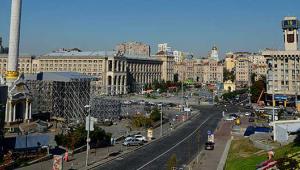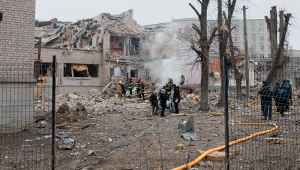By Judith Ugwumadu | 26 March 2014
Russia’s economy could contract by as much as 1.8% this year if the annexation of Ukraine’s Crimea region distracts the Kremlin from much-needed economic reforms, the World Bank has warned.
In its latest economic forecast, the bank highlighted fears that tensions in the region could cause Moscow to focus on short-term crisis management instead of changes to improve the country’s economy.
Recent events have exposed the weakness of Russia’s economy based on oil and gas revenues, the bank said, and the international dispute over Crimea’s annexation was likely to dent confidence as Western nations impose economic sanctions.
‘We assume that political risks will be prominent in the short-term,’ the report stated. ‘If the Russia-Ukraine conflict escalates, uncertainty could rise around sanctions from the West and Russia’s response to them.’
The bank’s high-risk scenario for the Russian economy stated a more severe shock to economic and investment activities could take place if the Crimean crisis worsens, resulting in a contraction of 1.8% in 2014 and 2.1% growth in 2015.
In its low-risk projection, the bank said growth was likely to be lower in 2014 than last year even if the impact of the crisis is limited. It projected a slowing of growth to 1.1% this year, down from 1.3% in 2013, with growth then rebounding to 1.3% in 2015.
‘No matter how the Crimean crisis plays out, there is the risk that the Russian government will be put back into a crisis mode to uphold macroeconomic stability, depending on the evolving scenario,’ the report stated.
The bank said the lack of growth-supporting reforms was dampening Russia’s growth prospects overall.
Country Director for Russia Michal Rutkowski said structural reforms were needed to overcome the current ‘confidence crisis’ and achieve the sustained long-term growth.
‘To attract larger sustained private investments would require addressing the inefficiencies in factor allocation across the economy,’ he said. ‘It would also require creating a level playing field for innovative business by improving the quality of the regulatory and market institutions to help implement the rules evenly.’













